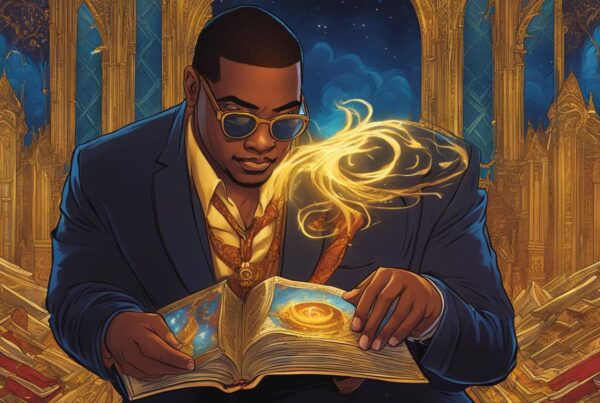What My Mother Doesn’t Know by Sonya Sones is a captivating novel in verse that takes readers on an emotional journey through the complexities of adolescence. The book follows the story of Sophie Stein, a freshman in high school, as she grapples with first love, family dynamics, and the challenges of growing up.
Sones’ poetic writing style brings a unique and engaging element to the storytelling, making it a compelling read for both young adult and adult audiences. Through Sophie’s experiences, readers are immersed in a world of young love, self-discovery, and the conflicts that arise from navigating the teenage years.
This book provides a thought-provoking exploration of universal themes such as the pursuit of identity, the longing for acceptance, and the complexities of relationships. By delving into Sophie’s emotional journey, Sones offers readers a relatable and authentic portrayal of the teenage experience.
Join us as we delve into the captivating story of What My Mother Doesn’t Know and explore the key themes, characters, and plot points that make this book an unforgettable read.
Key Takeaways:
- What My Mother Doesn’t Know is a novel in verse by Sonya Sones that explores the emotional journey of adolescence.
- The book follows the protagonist, Sophie Stein, as she navigates first love, family dynamics, and the challenges of being a freshman in high school.
- Sophie’s journey offers a relatable portrayal of the universal themes of identity, acceptance, and relationships.
- The poetic writing style adds a unique and engaging element to the storytelling.
- The book has received mixed reviews but has garnered recognition with awards and nominations.
The Immature and Shallow Protagonist
Sophie, the protagonist of What My Mother Doesn’t Know, has been criticized for being immature and shallow. Some readers find her and the other characters in the book to be too immature and lacking depth. Sophie’s perspective on love and relationships is seen as superficial, and her actions reflect a lack of emotional maturity. This aspect of the story has garnered mixed reviews from readers.
| Character | Description |
|---|---|
| Sophie Stein | An immature teenager who navigates her first love and struggles with family dynamics as a freshman in high school. |
| Other Characters | Supporting characters who are also criticized for their lack of depth and emotional maturity. |
Readers have commented on the superficial nature of Sophie’s perspective on love and relationships. Her understanding of these topics is seen as shallow, and her actions reflect a lack of emotional growth and maturity. Some readers find it challenging to connect with the characters due to their perceived immaturity and lack of depth.
However, it is essential to acknowledge that the portrayal of an immature protagonist and shallow characters can still resonate with certain readers. The book explores the authentic experiences of adolescence, where emotional development and self-discovery can be a gradual process. Sophie’s character serves as a reflection of the complexities and challenges faced by teenagers as they navigate their way through love, relationships, and personal growth.
The Complexities of First Love
The journey of first love is a significant milestone in one’s life, filled with excitement, passion, and anticipation. In Sonya Sones’ novel, What My Mother Doesn’t Know, the protagonist Sophie Stein embarks on this emotional rollercoaster with her infatuation for Dylan. However, their relationship emerges as an epitome of infatuation, lacking the depth and growth necessary for emotional maturity.
Sophie’s encounters with Dylan primarily revolve around physical attraction and superficial experiences, an infatuation fueled by the allure of first love. Their interactions lack the emotional intimacy and meaningful connection that characterizes a healthy and substantial relationship. The depiction of Sophie’s romantic journey highlights the complexities and challenges of navigating the uncharted territory of young love.
The Delicate Balance of Emotions
During adolescence, individuals experience intense emotions and a desire for emotional growth. Emotional development occurs through the highs and lows of one’s first romantic encounters, providing valuable lessons and shaping future relationships.
“First love is both exhilarating and bewildering. It’s a cocktail of emotions, where infatuation blends with insecurity, curiosity, and vulnerability. Sophie’s story epitomizes the complexities of this experience, highlighting the importance of emotional growth and self-discovery.”
As Sophie navigates her first love with Dylan, she grapples with the challenges of understanding her own emotions, distinguishing between infatuation and genuine connection. This emotional tug-of-war parallels the self-discovery and personal growth that often comes with first love.
It is through Sophie’s journey that readers are encouraged to reflect on their own experiences, cherishing the moments that contribute to emotional growth, and acknowledging the complexities of young love.

| Complexities of First Love | Key Takeaways |
|---|---|
| Infatuation versus Genuine Connection | Recognizing the difference between infatuation and emotional depth is essential for personal growth in relationships. |
| The Role of Self-Discovery | The journey of first love often involves introspection and self-discovery, leading to emotional maturity. |
| Challenges in Navigating Young Love | Youthful relationships can be complex, highlighting the difficulties in forming meaningful connections during this developmental stage. |
Sophie’s Misguided Relationships
In addition to her relationship with Dylan, Sophie Stein, the protagonist of What My Mother Doesn’t Know by Sonya Sones, also finds herself entangled in a misguided online romance with a boy named Chaz. Thinking she has found a connection in the virtual world, Sophie’s infatuation blinds her to the truth about Chaz’s intentions.
As the relationship progresses, Sophie slowly realizes that Chaz is not the person she thought he was. His online persona masks a perverted suitor who preys on her vulnerability and naivety. Shocked and betrayed, Sophie must muster the courage to end the relationship and confront the consequences of her misguided choices.
This storyline serves as a cautionary tale about the dangers of online romance and the risks associated with trusting strangers on the internet. Sophie’s experience highlights the challenges and pitfalls that teenagers face when attempting to navigate the complexities of love and relationships in the digital age.
Sophie’s Misguided Relationships
| Relationship | Description |
|---|---|
| Relationship with Dylan | Superficial and lacking emotional depth |
| Online romance with Chaz | Naive and misguided, ends in disappointment |
Characterizing Sophie’s Parents
The dynamics between Sophie and her parents play a significant role in What My Mother Doesn’t Know. Although Sophie’s parents may not exhibit the same level of affection and openness as her friends’ parents, they still demonstrate care and concern for her well-being in their own way. The portrayal of Sophie’s parents sheds light on the complexities of parent-child relationships, particularly during the tumultuous teenage years.
Sophie’s parents serve as flawed individuals who, like many parents, grapple with their own challenges and insecurities. Their imperfect parenting style reflects the realistic portrayal of flawed parents, struggling to navigate the complexities of raising a teenager.
One of the key factors contributing to the complexities of Sophie’s relationship with her parents is the communication issues they face. Sophie often finds it difficult to express herself openly and honestly to her parents, leading to misunderstandings and a lack of connection. This struggle to effectively communicate further highlights the challenges that many teenagers face when attempting to bridge the gap between themselves and their parents.
“I keep things from them… Afraid of letting them know what I really think and feel. And sometimes things just get so twisted up inside me, I don’t even know what I think and feel anymore.”
The Impact of Communication Issues
The communication issues between Sophie and her parents have a profound effect on their relationship. The inability to convey thoughts, emotions, and experiences effectively hampers their understanding of one another. As a result, Sophie often feels misunderstood and unsupported, leading to a sense of disconnection from her parents.
In order to explore the complexities of parent-child relationships and emphasize the challenges of understanding and communication during the teenage years, author Sonya Sones masterfully incorporates these elements into What My Mother Doesn’t Know.
| Challenges in Parent-Child Relationships | Examples from the Book |
|---|---|
| Differing perspectives on love and relationships | Sophie’s parents struggle to understand her infatuation and immature perception of love. |
| Generation gap and differing values | Sophie’s parents’ traditional mindset clashes with her modern ideas and experiences. |
| Lack of effective communication | Sophie’s hesitancy to share her true thoughts and feelings contributes to misunderstandings and distance between her and her parents. |
The challenges faced by Sophie and her parents in the novel serve as a reminder that parent-child relationships can be complex and riddled with communication issues. It highlights the importance of fostering open and honest conversations between parents and teenagers to build stronger connections and mutual understanding.
The Writing Style and Reception
What My Mother Doesn’t Know is written in a poetic, verse style, which adds a unique element to the storytelling. The novel in verse format allows for a creative and expressive exploration of the protagonist’s thoughts and emotions. The poetic style emphasizes the lyrical quality of the language, immersing readers in a vibrant and imaginative world.
The critical reception of the book has been mixed. Some readers and critics appreciate the use of verse, finding it to be a refreshing and engaging way to experience the story. The poetic style enhances the emotional impact of the narrative, creating a more intimate connection between the reader and the characters. The concise and rhythmic nature of the verse also makes the book a quick and enjoyable read.
However, there are also those who feel that the poetic style limits character development and depth. The brevity of the verses may leave some readers wanting more in terms of understanding the inner lives of the characters. The focus on poetic expression may overshadow the exploration of complex themes or the development of multifaceted characters.
“The novel in verse format of What My Mother Doesn’t Know adds a unique and poetic element to the storytelling, engaging readers in a vivid and emotional journey.”– Book Review Weekly
The book has also faced controversy and been challenged for its content in some schools. Some critics argue that the content is inappropriate or explicit for young readers, leading to debates about censorship and age-appropriate literature. However, many defenders of the novel argue that it provides an honest and authentic portrayal of teenage experiences and emotions.
| Pros | Cons |
|---|---|
|
|
Despite the mixed reception, the novel in verse format of What My Mother Doesn’t Know offers a distinctive and captivating reading experience, drawing readers into the emotional world of the characters. Whether you appreciate the poetic style or seek more depth in character development, this book sparks conversation and invites personal interpretation.
Awards and Recognitions
Despite the controversies surrounding the book, What My Mother Doesn’t Know by Sonya Sones has received several awards and recognitions. It showcases the book’s impact and highlights its significance within the literary community.
Iowa Teen Book Award
One of the notable accolades received by What My Mother Doesn’t Know is the prestigious Iowa Teen Book Award. This award recognizes outstanding young adult literature that resonates with teenage readers. Winning this award speaks to the book’s ability to captivate its target audience and provide relatable and engaging content.
American Library Association Best Book for Young Adults
The recognition as an American Library Association Best Book for Young Adults further solidifies What My Mother Doesn’t Know’s literary merit. This award acknowledges the book’s exceptional quality and its importance in empowering and inspiring young readers.
Discussion around Censorship
What My Mother Doesn’t Know has sparked discussions and debates about censorship in literature. Its inclusion on the list of most frequently challenged books highlights the ongoing conversations surrounding the boundaries of content deemed suitable for young readers. This controversy highlights the importance of diverse perspectives in literature and encourages a deeper exploration of complex themes.

| Awards and Recognitions | Description |
|---|---|
| Iowa Teen Book Award | Recognizes outstanding young adult literature |
| American Library Association Best Book for Young Adults | Recognizes exceptional quality in young adult literature |
Personal Reflection and Controversy
The book What My Mother Doesn’t Know by Sonya Sones has sparked discussions and debates surrounding its themes and portrayal of teenage experiences. This has led to questions about the appropriateness of the content for young readers and raised important concerns about censorship and the role of literature.
For some, the book provides an accurate representation of teenage thoughts and emotions, delving into the complexities of adolescence. It offers a personal reflection of the challenges faced by young people as they navigate relationships, self-discovery, and personal growth. The story resonates with readers who appreciate its honest portrayal of the teenage experience.
However, others argue that the book contains explicit or offensive material that may not be suitable for its intended audience. This perspective highlights the ongoing debate about the balance between artistic freedom and responsible content creation. It raises questions about the boundaries of censorship and the role of parents, educators, and society in determining what is acceptable for young readers.
“What My Mother Doesn’t Know invites readers to engage in a thoughtful exploration of the teenage experience and reflect on their own journey of self-discovery. It challenges conventional norms and encourages conversations about important topics, pushing the boundaries of what literature can do.”
The controversy surrounding the book forces us to confront the complexities of censorship. While there is a need to protect young readers from potentially harmful content, it is essential to strike a balance that allows for diverse perspectives and meaningful exploration of sensitive subjects. By encouraging open and honest conversations about these topics, literature can serve as a catalyst for personal and societal growth.
Ultimately, the debate surrounding What My Mother Doesn’t Know emphasizes the importance of critical engagement with literature and the power it holds to shape our understanding of ourselves and the world around us.
Conclusion
In conclusion, What My Mother Doesn’t Know by Sonya Sones offers a compelling and insightful book summary of the emotional journey of adolescence. Through the story of Sophie Stein, the book explores key themes such as love, relationships, family dynamics, and personal growth. Despite receiving mixed reviews and facing controversy, this novel presents readers with a valuable opportunity to reflect on their own experiences and engage in discussions about the complexities of teenage life.
One key takeaway from the book is the exploration of first love and the complexities that come with it. Sophie’s relationship with Dylan highlights the challenges of navigating young love, infatuation, and the development of meaningful connections. Another significant aspect is the portrayal of Sophie’s misguided relationships, particularly her online romance with Chaz. These experiences shed light on the struggles teenagers face in understanding the true nature of relationships and the potential dangers of online interactions.
Furthermore, the book delves into the dynamics between Sophie and her parents, showcasing the complexities of parent-child relationships during the teenage years. While flawed and imperfect, Sophie’s parents care for her in their own way, highlighting the challenges of communication and understanding that often arise during this stage of life.
Overall, What My Mother Doesn’t Know provides readers with a thought-provoking book summary, prompting reflection on the universal experiences and emotions of adolescence. Its exploration of love, relationships, family dynamics, and personal growth makes it a must-read for those seeking a deeper understanding of the teenage journey.



